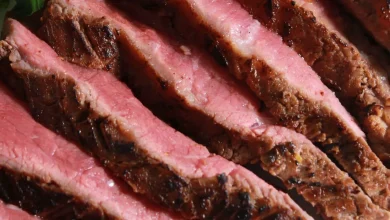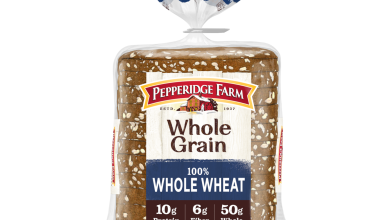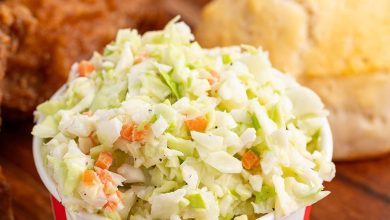Nutrient-Packed Japanese Raw Chestnuts: Health Benefits & Creative Recipe Ideas
Japanese Raw Chestnuts – A Nutritious Delight
Japanese chestnuts, often prized for their subtle sweetness and delicate texture, are a versatile and healthful addition to any kitchen. Whether roasted, boiled, or used in various culinary creations, these chestnuts offer a unique flavor profile and a nutritional boost. Below, we explore the details of this ingredient, including its rich nutritional content.
Ingredients Information
| Nutrient | Amount per 100g |
|---|---|
| Energy | 154 kcal |
| Protein | 2.25 g |
| Total Fat | 0.53 g |
| Saturated Fats | 0.078 g |
| Carbohydrates | 34.91 g |
| Fiber | 0.0 g |
| Sugars | 0.0 g |
| Calcium | 31 mg |
| Iron | 1.45 mg |
| Magnesium | 49 mg |
| Phosphorus | 72 mg |
| Potassium | 329 mg |
| Sodium | 14 mg |
| Zinc | 1.1 mg |
| Copper | 0.562 mcg |
| Manganese | 1.591 mg |
| Selenium | 0 mcg |
| Vitamin C | 26.3 mg |
| Thiamine (B1) | 0.344 mg |
| Riboflavin (B2) | 0.163 mg |
| Niacin (B3) | 1.5 mg |
| Vitamin B6 | 0.283 mg |
| Folate | 47 mcg |
| Vitamin B12 | 0 mcg |
| Vitamin A | 2 mcg |
| Vitamin E | 0 mg |
| Vitamin D2 | 0 mcg |
Allergen Information
Japanese raw chestnuts are naturally gluten-free, dairy-free, and nut-free, making them a suitable choice for a wide range of dietary preferences and restrictions. However, individuals with specific allergies should consult a healthcare professional before incorporating chestnuts into their diet, especially those who have nut or tree nut allergies, as chestnuts may cross-contaminate during processing or storage.
Dietary Preferences
- Gluten-Free: Chestnuts are an excellent gluten-free option for individuals with celiac disease or gluten sensitivity.
- Vegan & Vegetarian-Friendly: With no animal products, chestnuts are a perfect choice for plant-based diets.
- Low in Fat: Japanese chestnuts are naturally low in fat, making them a great snack for those looking to maintain a healthy diet.
- High in Carbohydrates: As a starchy food, chestnuts are rich in carbohydrates, offering an excellent source of energy for active individuals.
- High in Vitamin C: These chestnuts provide a good amount of vitamin C, which supports immune health and skin vitality.
Nutritional Benefits and Usage
Japanese raw chestnuts provide a wealth of essential nutrients that make them an excellent choice for a health-conscious diet. The rich carbohydrate content (34.91 g per 100g) offers sustained energy, making chestnuts a great snack for those on the go. Additionally, their protein content (2.25 g per 100g) provides a small but valuable source of plant-based protein.
The high potassium content (329 mg) supports healthy blood pressure levels, while the significant amounts of magnesium (49 mg) and phosphorus (72 mg) contribute to bone health. Iron (1.45 mg) further supports red blood cell production and oxygen transport throughout the body.
Chestnuts are also an excellent source of vitamin C, which boosts immunity and promotes collagen formation, aiding skin health. The B-vitamins, including thiamine (0.344 mg), riboflavin (0.163 mg), and niacin (1.5 mg), play vital roles in maintaining a healthy metabolism and converting food into energy.
How to Incorporate Japanese Raw Chestnuts into Your Meals
Japanese raw chestnuts can be enjoyed in a variety of ways, making them a versatile ingredient in both savory and sweet dishes. Here are some ideas for incorporating chestnuts into your meals:
- Roasted Chestnuts: Simply roast raw chestnuts over an open fire or in an oven for a warm, nutty snack.
- Chestnut Puree: Blend roasted chestnuts with a bit of water or stock to make a rich, creamy puree that can be used as a base for soups or sauces.
- Chestnut Stuffing: Add chestnuts to stuffing mixes for a nutty, slightly sweet flavor that pairs wonderfully with poultry dishes.
- Chestnut Sweets: Incorporate chestnuts into desserts like chestnut cake, chestnut ice cream, or chestnut-filled pastries for a decadent treat.
- Chestnut in Stews: Add chestnuts to stews or braises for a hearty texture and natural sweetness.
Conclusion
Japanese raw chestnuts are not only delicious but also pack a punch in terms of nutrition. From their high vitamin C content to their rich supply of minerals like magnesium, potassium, and iron, these chestnuts offer a host of health benefits. Versatile in the kitchen, they can be incorporated into a variety of recipes, both sweet and savory, making them a wonderful addition to any culinary repertoire.
Whether you enjoy them roasted as a snack or blended into a savory dish, Japanese chestnuts provide a unique, nutritious twist to your meals, while supporting your overall health and wellness.








